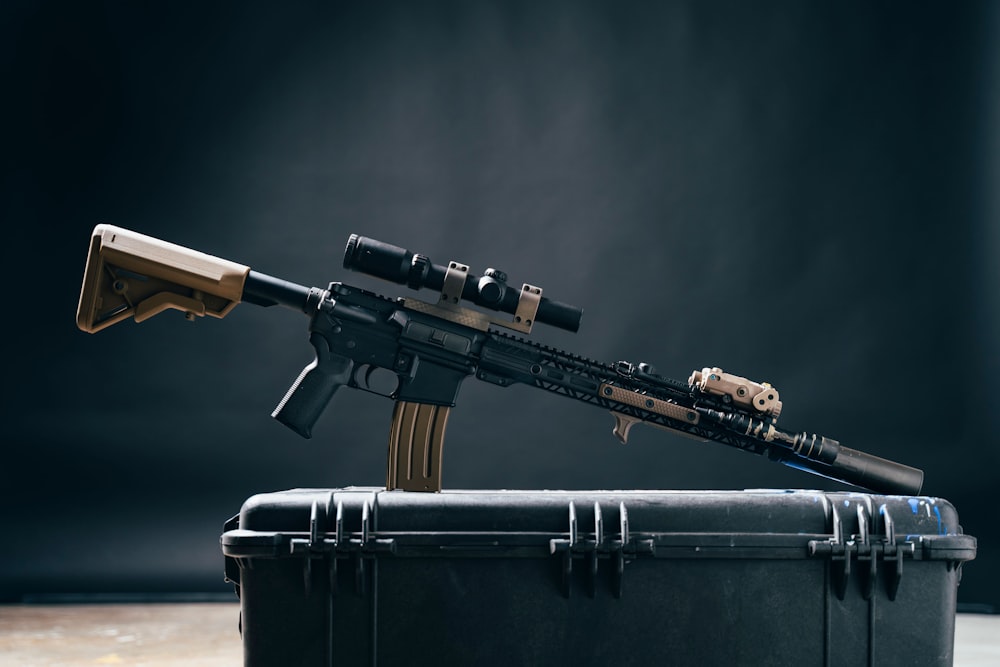A contract seen by OCCRP shows how Aboubakar Hima, who allegedly skimmed millions from $240 million in corrupt arms deals in his native Niger, may be up to his old tricks further from home.

At the beginning of this year, a Senegalese state agency signed a deal to purchase $77 million worth of assault rifles, semi-automatic pistols, ammunition, and other weapons from a little-known local firm that had only been set up a couple months earlier.
The contract was unusual in other ways, too. The agency that bought the arms was not the military, but the Environment Ministry. Still, the contract was never put out to bid, and once the deal was signed it was kept quiet, ostensibly due to Senegal’s defense security law. But OCCRP, in partnership with the Israeli newspaper Haaretz, learned of the deal and obtained a copy of the contract.
The supplier of the arms, Lavie Commercial Brokers, turns out to have been set up by the notorious West African businessman Aboubakar Hima, who is suspected of siphoning millions from inflated arms deals in Nigeria and his home country of Niger. An expert who discussed the Senegal deal with OCCRP reporters said irregularities in the contract suggested its price might also have been inflated.
Hima, who is often known by the nickname “Petit Boubé,” is no stranger to controversy. He has had some of his millions seized by the U.S. and South African authorities over illicit arms deals, and is wanted in Nigeria for his alleged role in making fraudulent arms deals with the government. In 2020, OCCRP revealed that a Nigerien government audit found Hima had brokered corrupt arms deals worth $240 million.
Perhaps conscious of his own notoriety, Hima may have sought to disguise his involvement in the Senegalese arms contract. While he is the only person named on registration documents for Lavie Commercial Brokers, the contract was signed on his firm’s behalf by Israel-based David Benzaquen, the company’s general manager.
Benzaquen founded an Israeli company called Lavie Strategies, which is licensed to export weapons by Israel’s Ministry of Defense. He is a former employee of Israeli arms dealer Gabi Peretz, a close friend of Senegal’s President Macky Sall. Peretz is known to supply military equipment to countries in West and Central Africa. Around the time that Hima’s firm obtained the Senegal contract, Peretz offered a 300-million-euro credit line to the Senegalese military.
In an emailed response to questions, Peretz said he had not had any contact with Hima since at least 2015 and had no knowledge of Lavie Commercial Brokers. He said Benzaquen had not worked for him since 2018 and “does not represent us,” and that he had no knowledge of Lavie’s contract in Senegal.
Senegal has been fighting a decades-long armed conflict with rebels in the southern Casamance region, along its borders with Gambia and Guinea-Bissau. Guerilla groups in the forests have smuggled timber and cannabis to finance themselves, and Senegalese forest rangers — overseen by the Environment Ministry — must arm themselves as a result. But experts questioned whether the Environment Ministry should have signed such a large and secretive weapons contract.
“We can ask ourselves the question if it is really necessary [for forest rangers to have assault rifles],” said Professor Semou Ndiaye, a consultant and researcher in corruption and good governance. “[The arrangement] is opaque. It is a deal that is directly arranged and naturally, there is a risk of corruption…the authorities can do as they see fit and there is a heightened risk of overpricing [of contracts].”
An analyst with experience in the security sector in Senegal, who asked not to be named as he was not authorized to speak to reporters, said it was “very unlikely” the Environment Ministry would need to spend tens of millions on arms.
“There have been recent increases in fighting between the army and rebels in Casamance, but I am not aware of any major incidents with the forest rangers,” he said. “I don’t think such a big contract should be signed by a single ministry without the involvement of security forces. And the Environment Ministry is obviously not buying weapons for the army.”
Experts also said it was surprising and problematic that Senegal would ink a major arms deal with a dealer found to be defrauding other governments.
“No responsible buyer, whether a government agency or a private company, does business with an individual who has a record of fraudulent dealing,” said Richard Messick, a former senior operations specialist at the World Bank who now consults for international organizations on legal development and anticorruption.
“It may be that the accusations against Mr. Hima are without merit. A responsible buyer would make absolutely sure of that before contracting with him,” he added.

Ethan Moore, crypto and stock trader since 2012. Co-founder of Blockwatch experts team.